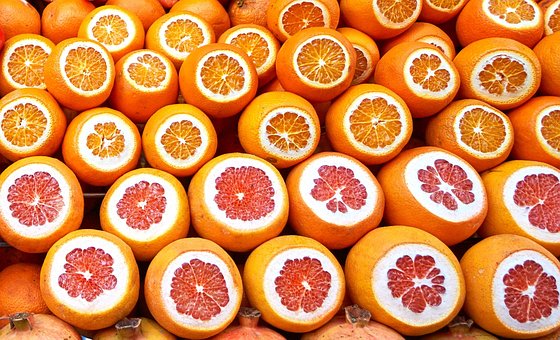
What Is Vitamin C?
Posted by SoundHealth on Tuesday, March, 29 2011 and filed under Nutrition
Key topics: Vitamin C • Bioflavonoid • Antioxidant • Ascorbic Acid

Vitamin C, also known as ascorbic acid, is an essential nutrient for the human body. It has powerful antioxidant properties, naturally protecting every cell in the body from damage. Vitamin C is found in virtually every variety of fruit and vegetable, so is by far the easiest nutrient to obtain, but few people get enough of this essential vitamin.
Vitamin C is a water-soluble form of sugar acid that appears white to yellow in a crystal or powder form. But Vitamin C is more than just an acid - it is a complex. In addition to ascorbic acid, Vitamin C must include rutin, bioflavonoids, and other substances in adequate amounts, otherwise there is no vitamin activity. When some of them are present, the body will draw on its own stores to make up the differences, so that the whole vitamin may be present. Only then will vitamin activity take place, provided that all other conditions and co-factors are present.
bioflavonoids are naturally occurring chemicals found in many of the same fruits and vegetables rich in Vitamin C. They also have great antioxidant properties but in a different way to Vitamin C. In contrast to ascorbic acid, the body recognizes bioflavonoids as a foreign compound and flushes them out, increasing levels of uric acid, resulting in the removal of excess free radicals and other toxins from the body, aiding in the antioxidant process. Different kinds of bioflavonoid help the body in different ways, but all are extremely useful. Therefore bioflavonoids improve the body's absorption of Vitamin C.
Vitamin C is required for a variety of essential metabolic functions. These help metabolize fats and proteins and aid recovery from wounds. In addition to Vitamin E and two amino acids, lysine and proline, Vitamin C is vital for the creation of collagen, the chief protein in soft and connective tissue throughout the body. Vitamin C, therefore, helps provide us with skin, hair, corneas, tendons, muscles, ligaments, bones, organs, cartilage, and the basis for the very structure of our cells. Without it we simply fall apart, which is scurvy. Last but not least, Vitamin C strengthens the piping of our cardiovascular system, and its deficiency is one of the chief factors in the leading cause of disease death today, heart disease. An adequate level of Vitamin C in the diet, therefore, is vital over the long-term.
Vitamin C is a powerful antihistamine, antiviral, antitoxin, and, as if all that's not good enough, Vitamin C acts as a particularly effective antioxidant, neutralizing cell-damaging free radicals in the body.
As we age, we slowly oxidize (biologically 'rust'). An antioxidant is a type of molecule able to slow down or prevent this oxidation process. Oxidation itself is a chemical reaction crucial to life, but one that can be damaging too. The body has various mechanisms to try to control this vital but potentially harmful system. If not properly controlled, oxidation releases free radicals which damage the cell and its DNA.
Antioxidants like Vitamin C stop these reactions by removing the free radicals and becoming oxidized themselves. If there are more free radicals than the antioxidants and enzymes can control, the body suffers oxidative stress, which can induce diabetes, cardiovascular disease, hypertension, and chronic inflammatory diseases. Vitamin C is thought to be a major player in preventing this from occurring.
Our bodies cannot generate Vitamin C, so our only way to get this essential nutrient is through diet. Vitamin C is found in abundance in fruits and vegetables, but the levels of Vitamin C in food depend on the type of plant, the soil it grew in, and other factors:
- Cooking and heat destroys many of the active components of Vitamin C, so eat a large proportion of your fruit and vegetables raw or lightly cooked.
- As food is stored, the Vitamin C content gradually decomposes so the fresher the food, the more Vitamin C it will retain. Correct storage in a cool place, such as a refrigerator, also helps maintain Vitamin C content.
- Vitamin C is water-soluble so it can't be stored for long in the body and therefore needs to be taken on a daily basis.
Vitamin C is also widely available in supplement form. If you choose to take a Vitamin C supplement, ensure your intake is spread throughout the day to maximize absorption and that the supplement contains bioflavonoids to aid Vitamin C metabolism.
Health, fitness and longevity
Based upon the principles of health
in the Qur'an and Prophetic Traditions.
HealthyMuslim.Com
There are two bounties in which
most people lose out: good health
and free time. Al-Bukhari.